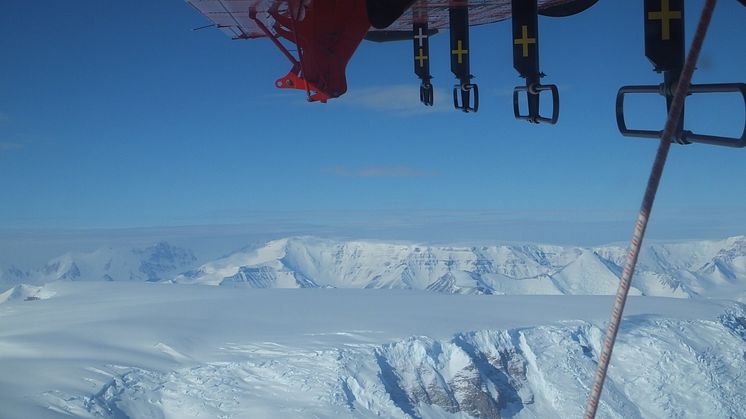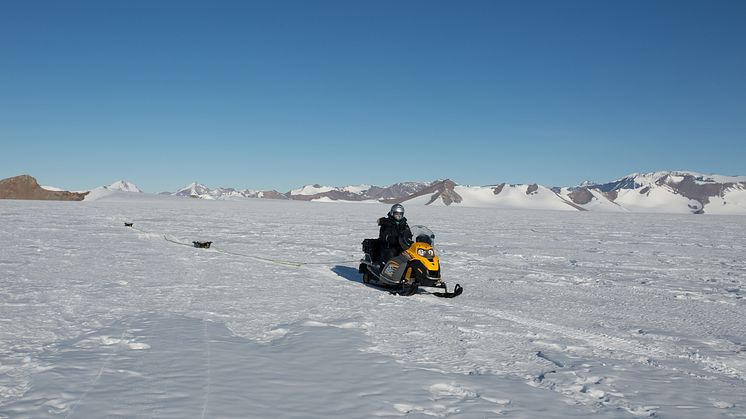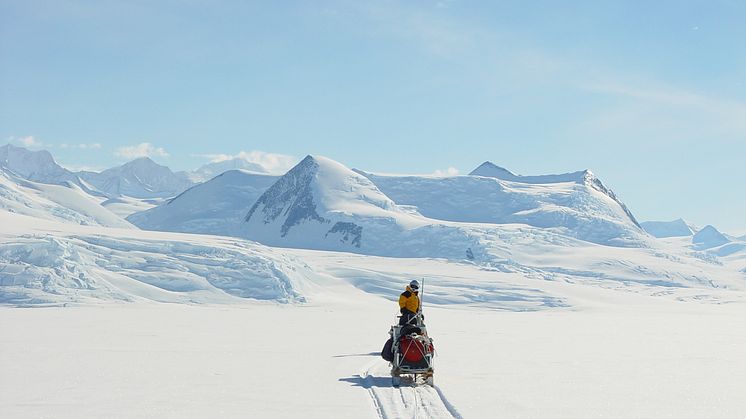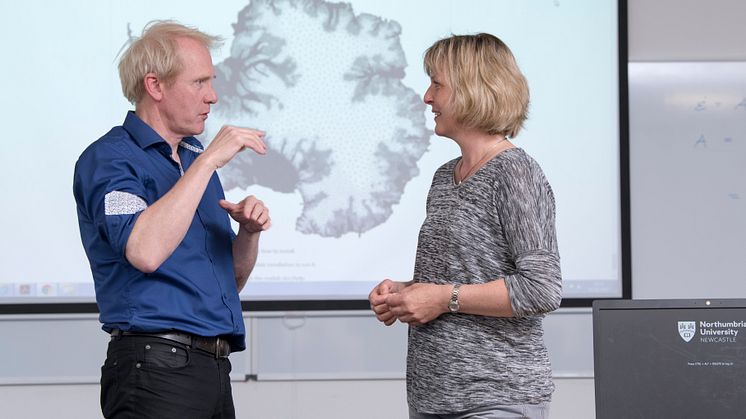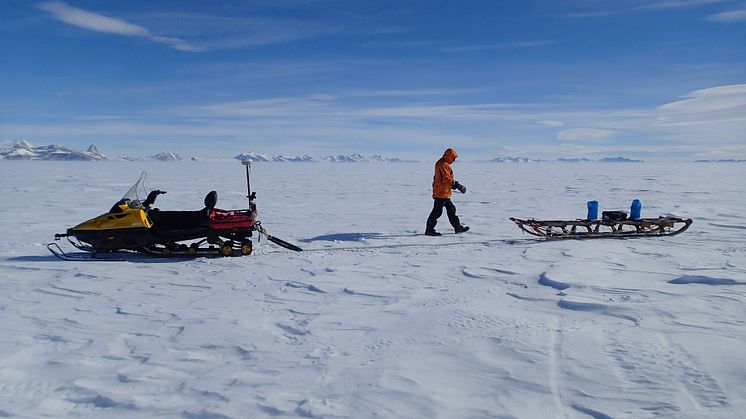
Press release -
International Fellowship award enables further Antarctic research
A leading Polar specialist from Northumbria University, Newcastle will shortly be returning to Antarctica to undertake more ground-breaking research after winning a prestigious international award.
Dr Kate Winter of the University’s Department of Geography and Environmental Sciences has become only the second ever female to win the €150,000 Baillet Latour Antarctica Fellowship. She was announced as the winner at a ceremony in Brussels, Belgium last night (Thursday 4 October).
The Baillet Latour Antarctica Fellowship is a joint initiative of the Baillet Latour Fund and the International Polar Foundation. It provides young scientists with the opportunity to conduct original research in East Antarctica’s cutting-edge Princess Elisabeth Antarctica research station.
Dr Winter is an applied physical geographer who specialises in using ice-penetrating radar and remote sensing techniques to understand what is happening underneath the Antarctic’s ice sheets.
Her work hit the headlines worldwide earlier this year when she discovered three huge unknown canyons and mountain ranges buried near the South Pole. The largest canyon was equivalent to the size of New York’s Manhattan Island.
Dr Winter will hold the Fellowship until 2020, with the award enabling two visits to Antarctica to conduct research.
In her first visit in January 2019, she will spend up to eight weeks at the Princess Elisabeth Antarctica research station where she will utilise recent advances in terrestrial laser scanning, photogrammetry, drones and ice-penetrating radar to undertake her research of landslides, ice flows and sediments.
Monitoring the area around the Sør Rondane Mountains in East Antarctica, Dr Winter will be working to understand how sediments are picked up by ice and transferred through the ice sheet towards the coast.
She will also be examining what nutrients – such as iron – might be in the sediment. Nutrient-rich sediments deposited into the ocean could increase marine productivity, which can draw-down CO2 from the atmosphere. This research may, therefore, provide important knowledge on how Antarctica is playing a role in future global climate change.
She will return the following year to repeat the same tests to see how much sediment has accumulated in a 12-month period. The results will tell us more about how climate change is affecting the Antarctic region.
Speaking about winning the award, Dr Winter said: “I am delighted and honoured to be awarded the prestigious Baillet Latour Antarctica Fellowship for 2018-2020. It will give me the unique opportunity to explore the important science questions that early career researchers are often unable to ask.
“The research I conduct over the next two years, thanks to this Fellowship, will enable me to establish myself in an internationally competitive field, allowing me to lay the foundations for a career in scientific research.”

Dr Winter is particularly enthused about the opportunity to spend time at the Princess Elisabeth Antarctica station, where she will see how scientists live and work in this zero-emission base. She hopes to share these practices with the wider community on her return, to inspire the next generation, and to encourage others to live a more sustainable life.
Professor John Woodward, Acting Pro-Vice-Chancellor for the Faculty of Engineering and Environment, is a fellow glaciologist who is also preparing for a trip to Antarctica. He will spend three months there in 2020, where he will lead field surveys looking for the best sites to drill for historic evidence of any former collapse of the ice sheet.
He said: “Northumbria University is quickly becoming known as one of the world’s premier institutions specialising in the impact of climate change on our polar regions.
“While Kate is in the early stages of her research career, her work is already attracting global attention for its significance and impact. We are delighted that her efforts have been recognised with the awarding of this Fellowship, which will provide her with excellent opportunities to take her research to the next level.”
Both Dr Winter and Professor Woodward are members of Northumbria University’s renowned research group specialising in Cold and Palaeo Environments. Researchers in this team investigate the ways in which climate change is, and has, affected how we live today.
The group has recently discovered that climate change may have played a more important role in the extinction of Neanderthals than previously believed and has also recently begun a €800,000 study into the impact that thawing permafrost, and the subsequent release of frozen carbon, is having on coastlines in the Siberian Arctic Ocean.
Earlier this year, it was announced that the University would receive £754,000 from the Natural Environment Research Council (UK) and the National Science Foundation (USA) to undertake research to understand how and when Antarctica’s massive Thwaites Glacier might collapse.
Click on the video below to see Dr Winter talk about her trip.
Topics
Categories
Northumbria is a research-rich, business-focused, professional university with a global reputation for academic excellence. To find out more about our courses go to www.northumbria.ac.uk
If you have a media enquiry please contact our Media and Communications team at media.communications@northumbria.ac.uk or call 0191 227 4604.







